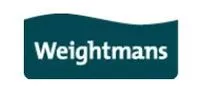- within Cannabis & Hemp topic(s)
What are the new changes the Home Office has announced to RTW checks?
The Home Office has announced some changes to RTW checks. Effective from 6 April 2022, manual checks will no longer be acceptable for holders of biometric residence permits (BRPs), biometric residence cards (BRCs), frontier worker permits (FWPs), or pre-settled or settled status under the EU Settlement Scheme (EUSS). For these individuals, electronic checks must be carried out.
New digital checks are also being introduced as an alternative to the manual checks.
How can I carry out a valid RTW check?
There are three ways to carry out a RTW check:
- Manual: obtain original documents from the employee, carry out the check in the presence of the employee and keep a copy. Note that this will not be permitted for holders of BRPs, BRCs FWPs, or pre-settled or settled status under the EUSS from 6 April 2022.
- Online: eligible employees (i.e., those holding a BPR, BRC, FWP, pre-settled or settled status under the EUSS, or a British National Overseas passport) can generate a share code on the Home Office online system. You can then complete the check online by visiting the Government's Right to Work webpage to view the employee's verified immigration status.
- Virtual: temporary adjustments will continue to allow you to carry out adjusted checks over video calls, using a scanned copy or photo of original documents received electronically for an extended period. This further extension will ensure the RTW scheme continues to operate in a manner that supports employers. The end date for the temporary COVID-19 adjusted RTW checks currently in force has been deferred to 30 September 2022 inclusive.
Guidance on RTW checks can be found on the Government website.
You must carry out a RTW check for every individual employed. Employers can face a civil penalty of up to £20,000 for each illegally employed worker who does not have the right to work in the UK and where correct checks were not undertaken.
Will retrospective checks be required?
Retrospective RTW checks will not be required for employees who had a COVID-19 valid adjusted video check between 30 March 2020 and 30 September 2022. As long as the checks carried out during the adjusted period were done in the prescribed manner, or as set out in the COVID-19 adjusted checks guidance, you will maintain a defence against a civil penalty.
Note that further checks will still be required if an individual has a time-limited RTW.
What is the new digital RTW check tool?
From 6 April 2022, the Home Office will introduce new digital RTW checks, using Digital Identity Document Validation Technology (IDVT). The only physical documents covered by IDVT will be valid British and Irish passports and valid Irish passport cards.
You will still be able to accept expired British and Irish passports and Irish passport cards for RTW check purposes, but the originals must be manually checked.
Any other eligible RTW documents will also have to be manually checked. So, unless the scope of IDVT is expanded, manual RTW checks will not be completely eliminated. Employers must make sure suitable processes are in place to carry out fully compliant manual RTW checks from 1 October 2022.
There will be a charge for the new right to work checks. The exact cost is not yet known.
What if an individual cannot provide evidence?
Not all individuals will qualify for an online RTW check or be able to produce a physical document. In some cases, the Home Office Employer Checking Service (ECS) can be used to request confirmation that an individual has the right to work in the UK, such as where:
- an application for permission to stay in the UK under the EU Settlement Scheme (EUSS) was submitted by 30 June 2021, but no decision received. The applicant must have a non-digital Certificate of Application or acknowledgement document from the Home Office confirming the same.
- an application for permission to stay in the UK under the EUSS after 30 June 2021 has been submitted, but the applicant has not received a decision and they have a non-digital Certificate of Application confirming the same.
- an application for permission to remain in the UK was validly submitted before the expiry of the applicant's previous visa, and this application remains outstanding.
- there is a pending appeal or administrative review.
- an individual has an Application Registration Card (ARC); or
- an individual is a long-term resident in the UK and arrived before 1988.
You will receive a 'Positive Verification Notice' if the person has a RTW in the UK. This provides you with a statutory excuse for six months from the date of notice. The Home Office aims to respond within five working days, though this can be subject to delays.
Originally published 01 April 2022
The content of this article is intended to provide a general guide to the subject matter. Specialist advice should be sought about your specific circumstances.


